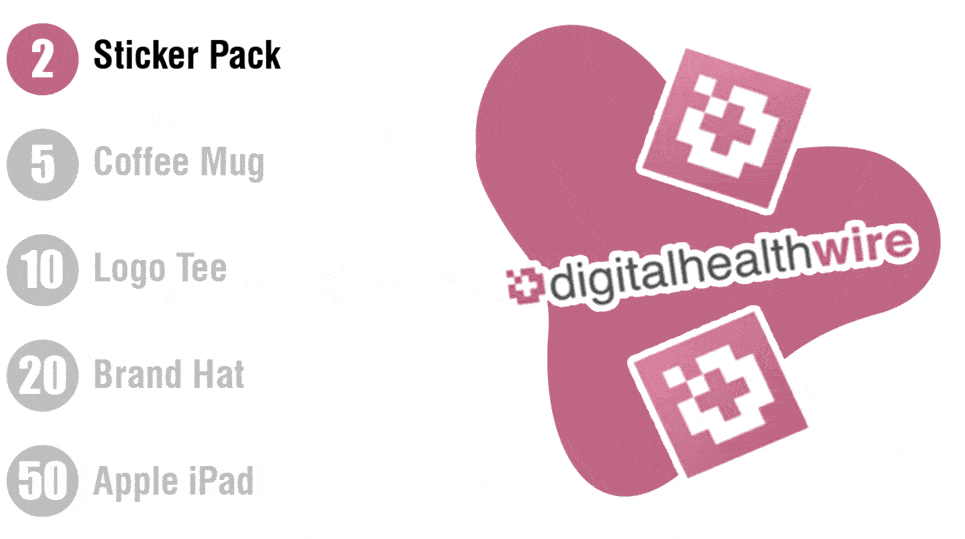|
Rock Health H1 2023 Recap | HCA Breach
July 13, 2023
|
|
|

|
|
Together with
|

|
|
|
“Unlabeled raises are one way for startups to protect their prior valuations while they continue to make progress, but they’re a battlefield tactic, not a long-term strategy.”
|
|
Rock Health’s H1 2023 Report – Mihir Somaiya and Madelyn Knowles
|
|

|
|
Rock Health’s H1 2023 digital health funding report confirmed the writing on the wall. We’re in a new market cycle, so it’s time to buckle up for fewer rounds, lower check sizes, and a smaller cohort of sector investors.
Here’s the first half of the year by the numbers:
- US digital health funding totaled $6.1B across 244 rounds ($24.8M average)
- Q2 contributed only $2.5B across 113 rounds (Q1 saw $3.6B across 131 rounds)
- Unprecedented 41% of H1 rounds weren’t tagged with a series or round label
- 12 mega-rounds over $100M accounted for 37% total funding
If the funding trend makes one thing clear, it’s that H1 2023 began to separate the best from the rest in Startup Land. (Chart: Funding Trend)
- We’re now on pace for the lowest funding year since 2019, and the fact that only 555 investors participated in digital health fundraises in H1 2023 (down from 775 in H1 2022) is another confirmation that we’re in the beginning of a new cycle.
Despite the slowdown, H1 counted 12 mega-rounds comprising 37% of total funding, and the $185M average check size rivaled the $188M seen during 2021’s peak mania (Chart: Mega-Rounds). Investors are now competing to crown the next class of household-name startups, particularly in three transformation areas:
- VBC enablement (Strive Health $166M, Arcadia $125M, Vytalize Health $100M)
- Non-clinical workflows – bonus points for “Shift” in name (Shiftkey $300M, ShiftMed $200M, MedShift $108M)
- At-home care (Author Health $115M, Monogram Health $375M)
The other major story from H1 was the staggering 41% of digital health rounds that were “unlabeled,” the highest share since 2011 (Chart: Unlabeled Raises). Most founders raise unlabeled capital for one of two reasons, both surefire signs of the times:
- To delay haircuts to previously-established valuations
- To avoid bad PR associated with a down round or a smaller-than-expected lettered raise
The Takeaway
The new funding cycle naturally brings growing pains, and the stopgap cure for those pains has been the unlabeled rounds that Rock Health referred to as “a battlefield tactic, not a long-term strategy.” When we eventually see the return of lettered funding rounds, Rock Health makes the case that founders should reset their valuations to match truly sustainable profitability and growth targets, which would ultimately position them for better long-term success.
|




|
|
Save Time & Minimize Risk with connectRN
connectRN takes the work out of hiring at scale. connectRN’s W2 staffing solution protects you and your business from liability. Plus, their credentialing team handles everything from state licensure to background checks, and you’ll have access to it all via their user-friendly platform. Learn more.
|
|
The New Standard for Prescription Safety
Synapse Medicine’s quick-deploy Prescription Assistance API and components can be up and running in less than a day and instantly connect your HCPs to real-time drug data and prescribing support. Find out how easy it can be to equip your providers with the tools they need to ensure prescription safety and precision for their patients.
|
|
Patient-Centered Design for Diabetes Care
Glooko’s recently overhauled Mobile App makes it easier than ever for diabetes patients to organize, log, visualize, and share their data. Head over to this conversation with Glooko’s product and design team for a behind-the-scenes look at how patient-centered design is improving diabetes outcomes.
|
|
- HCA Data Breach: HCA Healthcare announced a massive data breach where hackers stole data from 11M patients from an external storage site used to automate email formatting and posted it to an online forum. The data included name, address, email, phone number, and date of birth for any patients who received care at an HCA facility across 20 states, although the victims were lucky in that it didn’t contain any clinical information, passwords, or social security numbers. DataBreaches.net reports that the hackers reached out for ransom on July 4, and it looks like HCA refused to play ball.
- Note Bloat Keeps Bloating: A giant study of 1.7B clinical notes written by 166k outpatient providers from May 2020 to April 2023 found that “note bloat” continued to increase during the pandemic despite 2021 coding changes meant to reduce documentation burden. The Epic data shows that average note length increased 8.1% to 5k characters over those three years, yet the average time spent writing each note decreased 11.1% to 5.4 minutes. Those seemingly contradictory findings were attributed to increased use of both documentation tools and the good-old-fashioned copy/paste.
- Fold Funding: Primary care-focused tech developer Fold Health raised $6M in funding (total now $12M since launching last year) to provide private practices with tools to manage patient onboarding, marketing, and engagement on a per-member per-month basis. Fold is positioning itself as the most modular operating system in the primary care enablement space, and can be layered on top of existing EHRs and member management systems to reportedly automate “60% of the work required to succeed in value-based care.”
- Cleveland Clinic Opens Concept Hospital: Cleveland Clinic opened Mentor Hospital in Lake County, Ohio to serve as a concept facility with telehealth connectivity in all 57 patient rooms. Mentor Hospital enables patients to immediately connect with resources wherever Cleveland Clinic has subject matter expertise, and will treat patients who have less critical needs with follow-up care at home. Wide-ranging outpatient services include cardiology, digestive disease, and urology, while inpatient services are limited to primary care, orthopedics, and general surgery.
- Digital PT Equal to In-Person Treatment: New research in Nature Digital Medicine suggests that digital physical therapy is equally effective to in-person treatments for chronic lower back pain. Researchers randomized 140 participants into groups that received either in-person PT or Sword Health’s digital PT program (pairs a Doctor of PT with an AI therapist for personalized care). At 8-weeks, both groups experienced equally strong improvements in disability and secondary outcomes (e.g. pain, depression), although the digital group saw significantly fewer dropouts (15.7% vs. 34.3%).
- NeuroFlow + Novant: NeuroFlow is extending its partnership streak after adding North Carolina-based Novant Health to its health system roster. NeuroFlow’s platform helps providers track and connect with patients between visits in addition to providing clinical decision support with next best steps for treatment. Novant patients with depression will also be able to access NeuroFlow’s digital behavioral health resources and remote clinical assessments.
- Eureka Health Launch: Eureka Health debuted with $7M in seed funding to help chronically ill patients find a community and share treatment experiences. The startup’s user dashboard can be sorted by “similarity scores” that rank the overlap of demographics and conditions, which leverages large language models trained on comments posted to places like Reddit and Facebook. Eureka currently hosts communities for Long COVID, metabolic disease, and autoimmune disorders, with more on the way following the funding.
- Air Pollution Worsens Depression: University College London uncovered some not-so-great news for those near the Canadian wildfires, with a recent study finding that air pollution increases depressive symptoms in patients with bipolar disorder. Researchers found a positive correlation between poor air quality and depression by comparing geolocation data with symptoms reported by 1,423 Juli app users, with PHQ-8 scores (0-24 point scale) increasing by 1.1 points for every 100 point increase in Air Quality Index (<50 is good air quality, 300+ is hazardous).
- Verifiable Series B: Verifiable closed a $27M Series B round (total funding now $47M) to bring API-first credentialing solutions to provider orgs and healthcare companies. Verifiable’s suite of network management solutions incorporates real-time verification tech to expedite credentialing from a matter of weeks to days. Over the past year, Verifiable has shifted its focus toward enterprise clients, adding Humana as a customer and bringing many of its products to the Salesforce platform.
- Unreasonable Wait Times: A recent survey from the American Association of Nurse Practitioners showed that 40% of the 1,029 respondents have experienced “longer than reasonable” wait times for healthcare. Across all demographics, 26% reported that they’ve had to wait over two months, with younger adults, people living in urban areas, and Hispanic patients most likely to give up on seeing a provider after a lengthy wait.
- Sweat-based AI Heart Monitoring: YOPI Technologies completed development of its unique wrist wearable, which analyzes electrolytes in wearers’ sweat to monitor oxygen consumption (aka VO2) for signs of “heart deterioration.” The Israeli startup is now ramping up manufacturing, targeting mass production in early 2024. Sweat analysis might seem like a far-out approach, but a growing number of wearable players are seeking new ways to calculate VO2 (including Apple), with some positioning their devices as alternatives to in-clinic cardiopulmonary exercise tests.
|
|
Creating an Exceptional Engagement Experience
With a surge in experience‑oriented disruptors entering the healthcare industry, patient engagement is becoming a crucial competitive differentiator. Get your copy of Nuance’s guide to delivering intelligent interactions and a better experience at every touchpoint.
|
|
Medallion Unites Family Care Center’s Credentialing Process
As Family Care Center set out to expand its behavioral health services, it needed a scalable provider credentialing solution so that its staff could keep focusing on patient care. Find out how Medallion’s CAQH-integrated platform helped Family Care Center onboard its providers faster by letting them complete their applications in two days instead of two weeks.
|
|
Successful RPM Through End-to-End Support
From needs assessments and program deployment to security enhancements and call center monitoring, Clear Arch Health offers fully customizable support services to help you get the most from your RPM solution.
|
|
|
Share Digital Health Wire
|
|
Spread the news & help us grow ⚡
|
|
Refer colleagues with your unique link and earn rewards.
|

|
|
|
|
Or copy and share your custom referral link: *|SHAREURL|*
|
|
You currently have *|REFERRALS|* referrals.
|
|
|
|
|